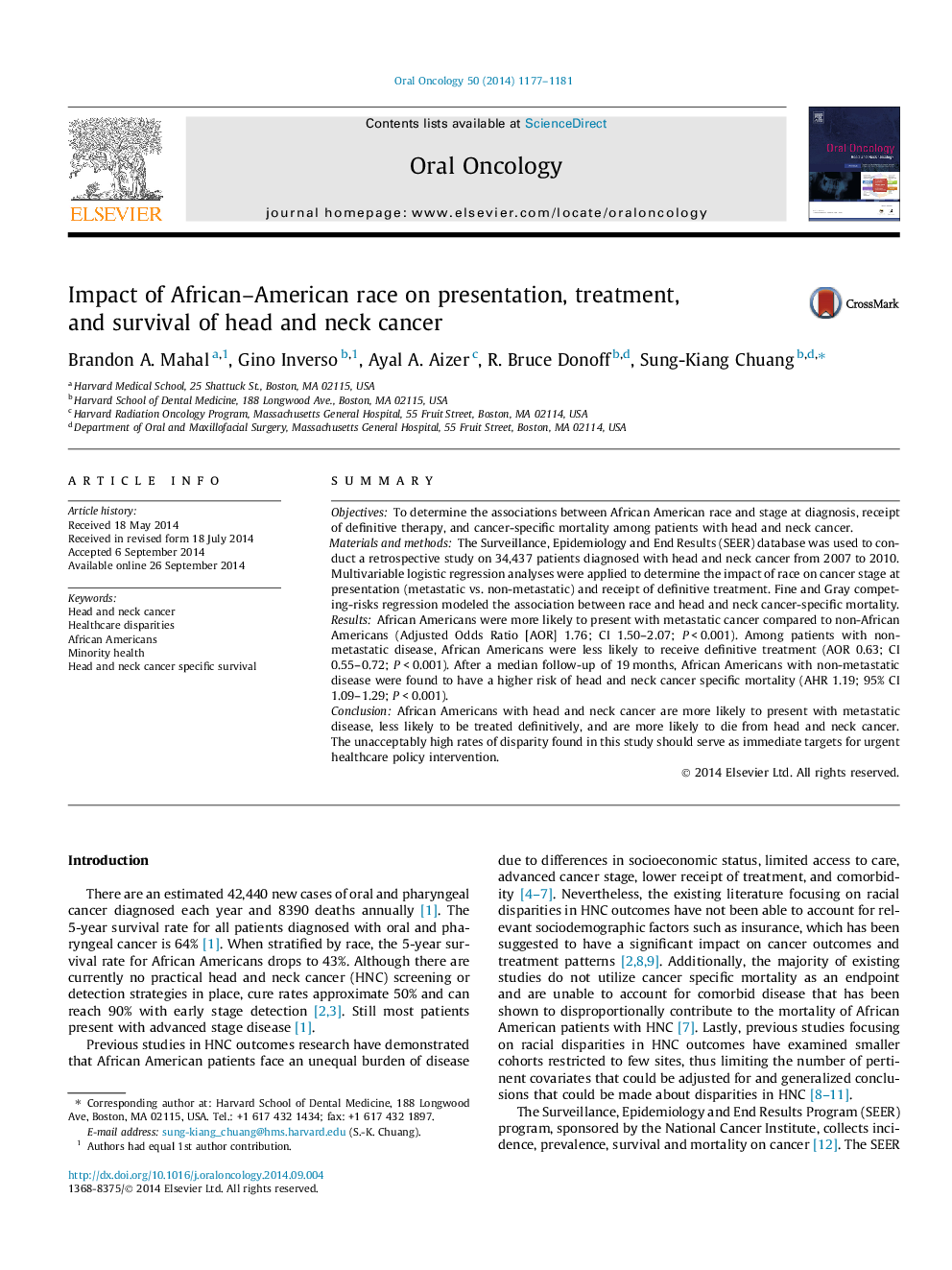| Article ID | Journal | Published Year | Pages | File Type |
|---|---|---|---|---|
| 3163948 | Oral Oncology | 2014 | 5 Pages |
SummaryObjectivesTo determine the associations between African American race and stage at diagnosis, receipt of definitive therapy, and cancer-specific mortality among patients with head and neck cancer.Materials and methodsThe Surveillance, Epidemiology and End Results (SEER) database was used to conduct a retrospective study on 34,437 patients diagnosed with head and neck cancer from 2007 to 2010. Multivariable logistic regression analyses were applied to determine the impact of race on cancer stage at presentation (metastatic vs. non-metastatic) and receipt of definitive treatment. Fine and Gray competing-risks regression modeled the association between race and head and neck cancer-specific mortality.ResultsAfrican Americans were more likely to present with metastatic cancer compared to non-African Americans (Adjusted Odds Ratio [AOR] 1.76; CI 1.50–2.07; P < 0.001). Among patients with non-metastatic disease, African Americans were less likely to receive definitive treatment (AOR 0.63; CI 0.55–0.72; P < 0.001). After a median follow-up of 19 months, African Americans with non-metastatic disease were found to have a higher risk of head and neck cancer specific mortality (AHR 1.19; 95% CI 1.09–1.29; P < 0.001).ConclusionAfrican Americans with head and neck cancer are more likely to present with metastatic disease, less likely to be treated definitively, and are more likely to die from head and neck cancer. The unacceptably high rates of disparity found in this study should serve as immediate targets for urgent healthcare policy intervention.
